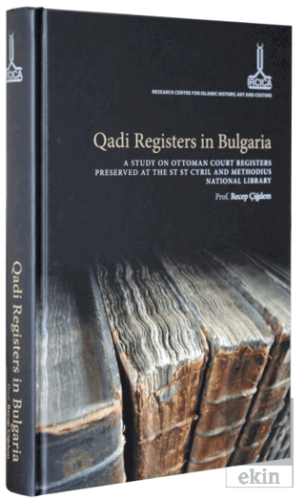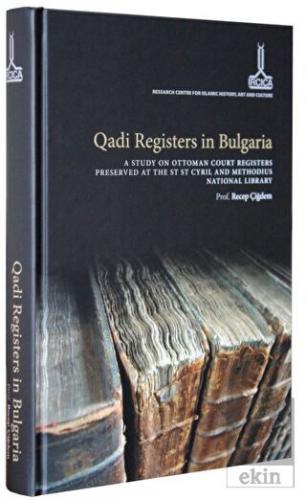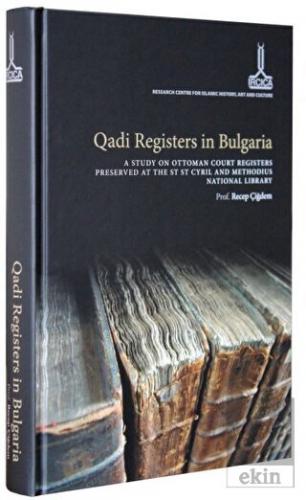
Thisbookis theoutcomeofan extensiveresearch workbyProf. Dr. RecepÇiğdem from Harran Universityin Turkey. It ispublished within IRCICA'sSeriesof ShariaCourt Registers. Itanalyzes therecordsof the Ottoman Sharialaw courtspreservedatSt.St.Cyriland Methodius NationalLibraryin Bulgaria. In the first chapter of the book the author gives information on the cases dealt with by these courts, the procedures for the appointment of the qadis (judges) and naibs (deputy judges), the terminology of judicial records, documents issued by the courts, and a number of other subjects of interest for the law historian. The second chapter is devoted to Muslim minority courts with coverage of such themes as the structure of the Sharia courts; the First Instance Court, theCourtof Appeals, the High ShariaCourt, relationsbetween theShariacourtsandsecular courts,administrativeauthorities,officials, lawyers, the extent of the power of these courts, among others. The third chapter, which is the main part of the study, examines individual registers. A total of 191 registerspreservedin the library were scrutinizedanddocuments relatedtoeach case were scanned. The ForewordofProf. Çiğdem explains in detail the salient featuresofeach chapterandspecifies that thethirdchapter focuses mainlyon theShariacourtsof theindependenceperiodin Bulgaria, specifically between 1878-1945. The extensive bibliography and the index of personal names will be useful for researchers concerned.
Thisbookis theoutcomeofan extensiveresearch workbyProf. Dr. RecepÇiğdem from Harran Universityin Turkey. It ispublished within IRCICA'sSeriesof ShariaCourt Registers. Itanalyzes therecordsof the Ottoman Sharialaw courtspreservedatSt.St.Cyriland Methodius NationalLibraryin Bulgaria. In the first chapter of the book the author gives information on the cases dealt with by these courts, the procedures for the appointment of the qadis (judges) and naibs (deputy judges), the terminology of judicial records, documents issued by the courts, and a number of other subjects of interest for the law historian. The second chapter is devoted to Muslim minority courts with coverage of such themes as the structure of the Sharia courts; the First Instance Court, theCourtof Appeals, the High ShariaCourt, relationsbetween theShariacourtsandsecular courts,administrativeauthorities,officials, lawyers, the extent of the power of these courts, among others. The third chapter, which is the main part of the study, examines individual registers. A total of 191 registerspreservedin the library were scrutinizedanddocuments relatedtoeach case were scanned. The ForewordofProf. Çiğdem explains in detail the salient featuresofeach chapterandspecifies that thethirdchapter focuses mainlyon theShariacourtsof theindependenceperiodin Bulgaria, specifically between 1878-1945. The extensive bibliography and the index of personal names will be useful for researchers concerned.
| Taksit Sayısı | Taksit tutarı | Genel Toplam |
|---|---|---|
| Tek Çekim | 1.740,00 | 1.740,00 |
| 2 | 904,80 | 1.809,60 |
| 3 | 626,40 | 1.879,20 |
| Taksit Sayısı | Taksit tutarı | Genel Toplam |
|---|---|---|
| Tek Çekim | 1.740,00 | 1.740,00 |
| 2 | 904,80 | 1.809,60 |
| 3 | 626,40 | 1.879,20 |












